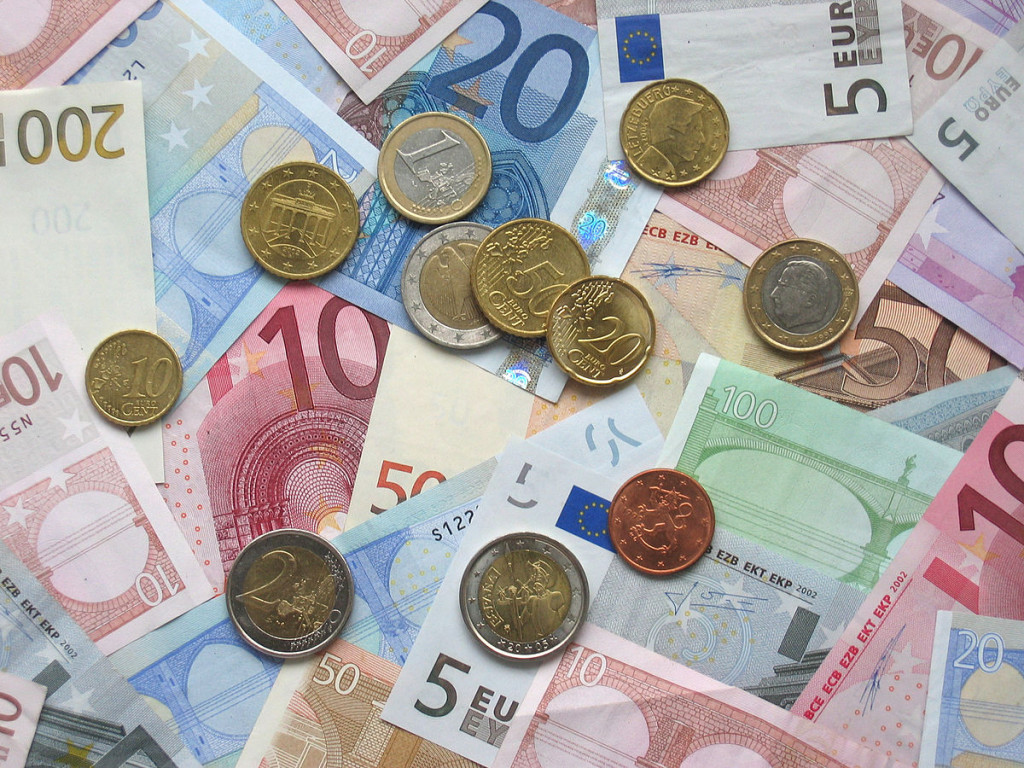A Joint Open Letter on the Future of EU Finance
22 September 2017
To:
Antonio Tajani, President of the European Parliament
Jean-Claude Juncker, President of the European Commission
Valdis Dombrovskis, Vice-President of the European Commission
Günther H. Oettinger, Commissioner for Budget and Human Resources
Pierre Moscovici, Commissioner for Economic and Financial Affairs
The Committee for Economic and Financial Affairs
Marco Buti, Director General for Economic and Financial Affairs
Directorate General for Financial Stability, Financial Services and Capital Markets Union
The EPP Group in the European Parliament
The ALDE Group in the European Parliament
The EU budget has been a result of political negotiations and trade-offs between Member States rather than a well-grounded financing of mutually agreed pan-European goals for a long time. The politicized use of EU funds distorts the motivation of market participants, impairs free competition, discourages an effective allocation of limited resources, incentivizes corruption, drives inflation in recipient countries and brings benefits primarily to particular interest groups rather than to all EU citizens.
The process of forming the EU budget faces a phenomenon known in economics as “The Prisoner’s Dilemma” where each Member State would be better-off financing common goals. Failing to cooperate on mutual goals and seeking to maximize their own benefits, Member States end up trapped in a situation of inefficient spending. A mutual agreement that funds can only be allocated for projects that bring pan-European benefit is needed to tackle this, while any other use of funds should be restricted as bringing much less benefit to citizens. For the EU budget reform, there must be a zero baseline in the beginning, with no preconceptions regarding the principles, size, revenue sources, policies and measures of the budget.
The present budgetary revenue system is too complex, and the use of multiple revenue streams is inefficient and unjustified. The VAT and GNI-based revenue streams overlap, causing double taxation of the value added component. The EU budget’s revenue sources must be reformed and built on the following maxims: national contributions to ensure democracy; proportionality to secure fairness and neutrality; simplicity and transparency to create accountability; and a low administrative burden to increase the effectiveness of payments. However, the only scenario of the Reflection Paper on the Future of EU Finances which reflects the abovementioned maxims is Scenario 5 “Radical redesign: Simplification of the current system: abolish all rebates, reform or abolish value added tax-based own resource.” Currently, the policies funded from the EU budget are too demanding, too ambitious and thus unrealistic. They are incoherent and contradictory; some of them erode European competitiveness, so the goals attached to every policy and consistency thereof need profound re-examination.
In our view, the way out of this “Prisoner’s Dilemma” lies in the agreement to finance only pan-European projects. Given that the single market and economic freedoms bring real and tangible benefits to all EU citizens and to all Member States, and that this was the major aspiration for founding the EU, its budget should be strictly in line with the goal of implementing and strengthening the common market. No funding should be justified if it hampers the free movement of capital, technology, goods, services and people. Instead, budgetary expenditure must be aligned with the following maxims: EU funds for EU goals, because goals, not interests, ensure efficiency. Applying those principles implies a fundamental reform of the existing policies.
Importantly, cohesion may only be achieved through the removal of regulatory barriers to flexibility and the free movement of the factors of production within the common market, as well as the improvement of the physical conditions to free movement, e.g. the development of infrastructure that links Member States together.
Competitiveness policy should promote free competition. Public “competition” projects or publicly subsidized private for-profit projects should not be acceptable. A number of current competitiveness policies include programmes that improve market conditions, such as pan-European transport projects. Such programmes should be prioritised in the future.
Finally, there is hardly any social and economic justification for the Common Agricultural Policy (CAP) and rural development programmes. The investment into creating a “good” CAP is a waste of time and other limited resources, so all efforts should focus on the creation of a sound exit mechanism and abandoning this destructive use of public resources.
On the expenditure side, there is a need for the following actions:
1) to create a sound exit mechanism from CAP and rural development policies with an annual reduction of contributions to the EU budget by the amount previously allocated to these policies;
2) to redesign the Cohesion Policy focusing on the removal of barriers to flexibility of the markets and the free movement of the factors of production inside the EU and the improvement of the infrastructure links between Member States;
3) to abstain from financing highly uncertain goals, such as climate change control and mitigation, Galileo, etc.;
4) to rely on the private financing of innovation, research and development and not to increase the present EU budget funding for those purposes;
5) to supplement the Union’s external actions with the promotion of free market reforms in non-EU countries;
6) to avoid the financing of for-profit private companies regardless of their region, economic activity or project;
7) to avoid unrealistic and potentially harmful large scale investment programs such as the Juncker’s Investment Plan.
To conclude, only a fundamental budgetary reform, not a minor structural change, may advance a prosperous Europe. The EU budget must be reduced if an agreement on common and attainable goals cannot be reached.
Undersigned by:
The Lithuanian Free Market Institute, Lithuania
The Institute of Economic Affairs, the United Kingdom
Institut économique Molinari, France
Civismo, Spain
Timbro, Sweden, all of the above members of the EPICENTER Network, and
The Institute of Economic and Social Studies, Slovakia
The Foundation for the Advancement of Liberty, Spain
The Spanish Taxpayers Union, Spain



